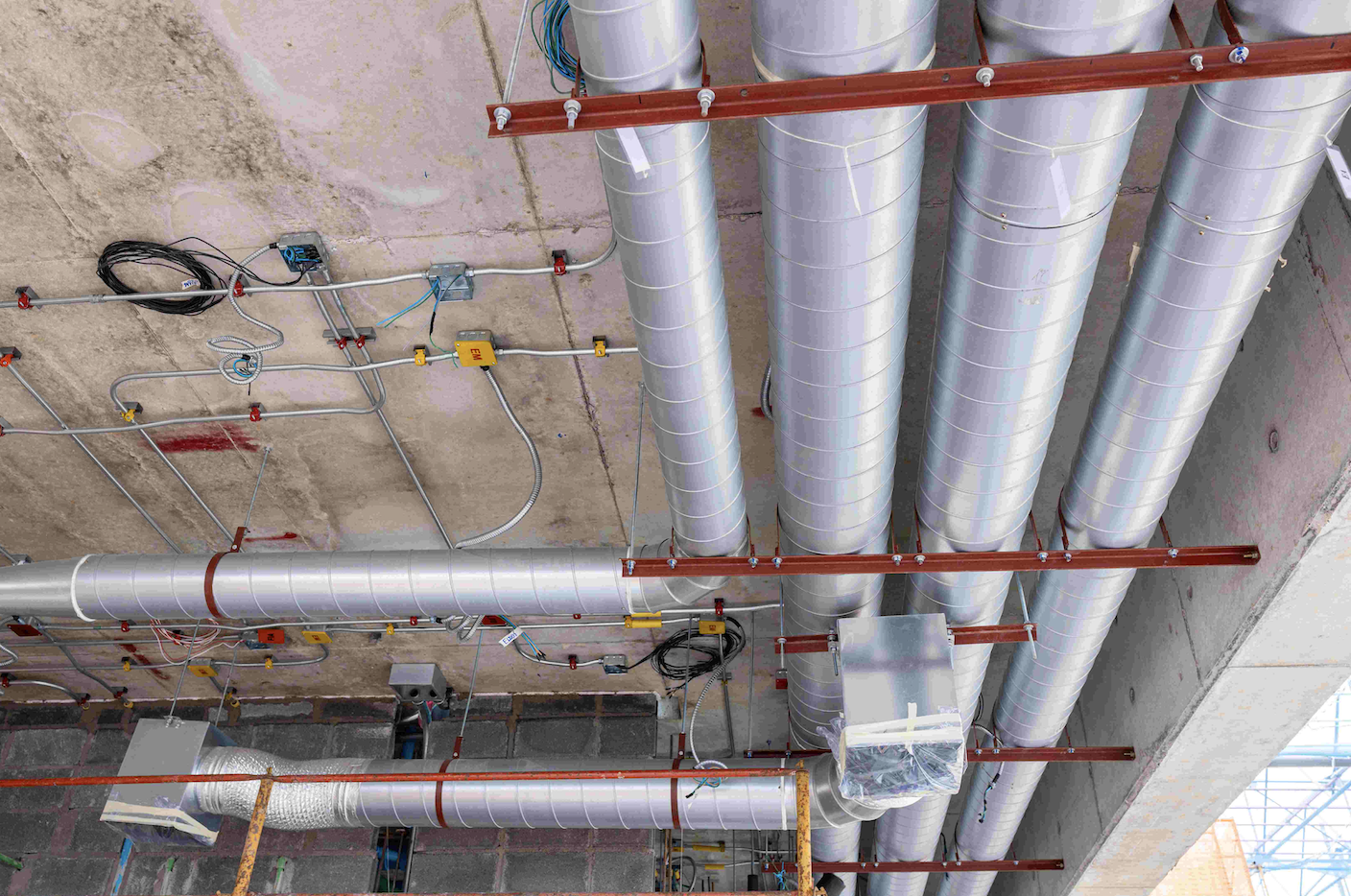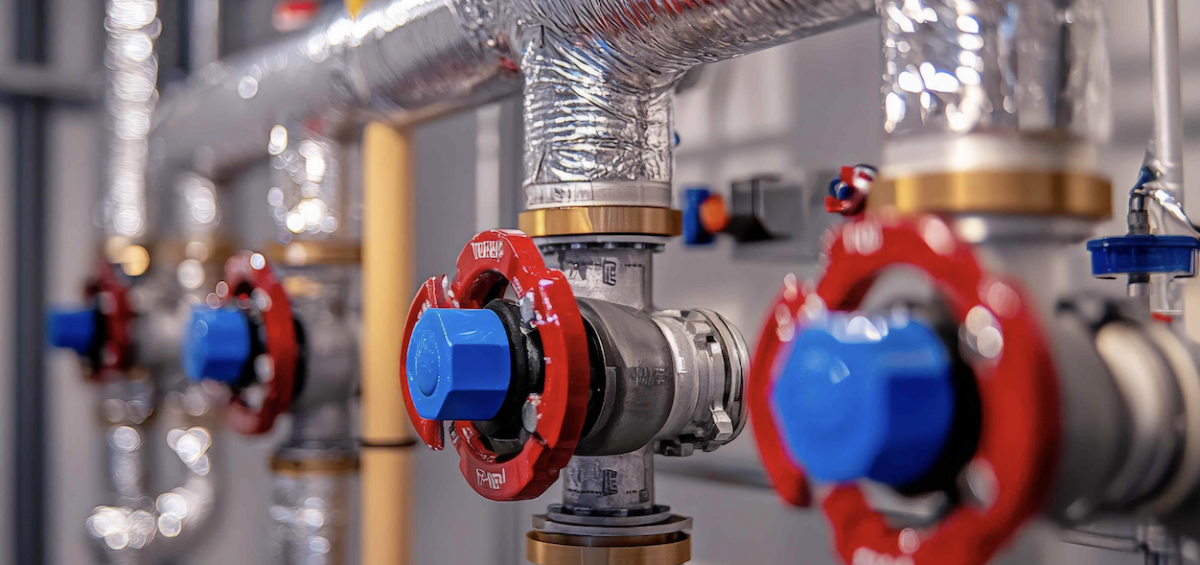Energy costs in commercial buildings can add up quite fast. As a building owner, looking for ways to reduce these costs makes sense. There are many ways to do this, one of which is mechanical pipe insulation.
Insulating your pipes to save costs might seem like a small move in the grand scheme of things, but it can go a long way. Curious how? Here are the savings that proper mechanical pipe insulation can bring to commercial buildings:
Can Minimize Heat Loss or Gain
You’d want hot water pipes to keep the water hot. When you insulate them, you help prevent heat from escaping into the surrounding air. The result is hot water that remains at the desired temperature for longer. You wouldn’t need to keep reheating every time. As a result, you lower your energy consumption.
But it’s not just about hot water. Properly insulated pipes are unlikely to absorb heat from the surrounding environment. As a result, they can maintain the water temperature and reduce the load on cooling systems.
If this sounds like something you’d want for your commercial building, you may want to contact a pipework insulation contractor or other experts with the right set of skills.
These pros bring their years of expertise to your commercial buildings and help get your pipes and HVAC systems in the correct working order. This can help you and your tenants enjoy the benefits of cost savings on energy and heating and cooling systems working at their absolute best.
Reduces Condensation and Mould Growth
When the humid season comes, your cold water pipes could easily drop below the dew point. The result is condensation forming on the pipes’ surfaces. This condensation can lead to water damage that affects ceilings, walls, and floors. You may have to spend heavily to remediate this.
Apart from water damage, there’s also the potential of mould growth, thanks to persistent moisture. Mould growth could compromise indoor healthcare quality and put the building occupants at risk. When you insulate your pipes, you prevent the surface temperature from dropping below the dew point. This decision could save you money and keep the occupants of your commercial buildings healthy.
Enhances Thermal Comfort
Proper insulation can guarantee that heated or cold fluids keep their temperature as they travel through the building. This can be a source of great comfort for the occupants.
Take the example of a multi-story office block. Hot water pipes run through uninsulated corridors before reaching the offices at the far end. Due to the insulation shortfall, it would be no surprise that the occupants at the far end experience inconsistent heating.
To compensate for this, they may opt to source additional space heaters. This may cost more due to increased energy usage. When you keep your pipes well insulated, you’ll likely benefit from uniform heating on all floors, which reduces the need for supplemental heating.
Extends Equipment Lifespan
 Improper insulation may lead to your HVAC systems running their course sooner than expected. This is because the chillers, boilers, and other equipment have to run harder to maintain the right temperature.
Improper insulation may lead to your HVAC systems running their course sooner than expected. This is because the chillers, boilers, and other equipment have to run harder to maintain the right temperature.
Since they are overworking, it’s only a matter of time before you incur costs, thanks to frequent breakdown and emergency repairs. You may also have to replace key components like compressors and heat exchangers.
Insulating your pipes can reduce thermal losses. As a result, your HVAC system can operate more efficiently, translating to fewer equipment failures and lower maintenance costs. You may also enjoy extended lifespans of chillers, boilers, and air handlers.
Keeps You In Compliance
It’s no secret that the world today has become increasingly energy-conscious. As a building owner, there are standards you’re supposed to uphold to be in compliance. One of them is the ASHRAE 90.1, or the American Society of Heating, Refrigerating, and Air-Conditioning Engineers 90.1
These standards mandate insulation for pipes carrying heated or cooled fluids to minimize thermal losses. Your hot water pipes must have a certain R- value (thermal resistance) to be compliant, while chill water pipes have standards too to prevent heat gain.
Far from that, there’s the International Energy Conservation Code (IECC) which has some stringent guidelines for energy efficient building design. Getting this right can help you achieve better energy performance and set you up for certifications like LEED (Leadership in Energy and Environmental Design).
Compliance also puts you in good standing with the law and opens the door to financial incentives, such as tax credits, rebates, and grants. Also, should you decide to put your commercial building on the market, its energy efficiency can make it an attractive investment.
Closing Thoughts
Mechanical pipe insulation can greatly lower your energy costs. This guide has shown you how. If you’re convinced it’s the right approach for you, consider looking up different service providers. Settle for the one that best fits your commercial building needs and budget.

